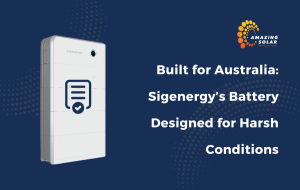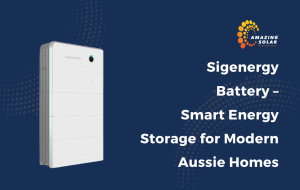A solar monitoring system plays a crucial role in ensuring the efficient operation of your solar photovoltaic (PV) system. It gathers and analyzes essential data from your solar installation, including power output, voltage, current, and temperature. This data is vital for tracking performance, identifying issues, and optimizing energy production. In this article, we will delve into the different types of solar monitor systems and their advantages.
Types of Solar Monitoring Systems:
- Inverter Monitoring Systems: Inverter monitoring systems are the most prevalent type of solar monitoring systems. They focus on monitoring the performance of the solar inverter, a key component responsible for converting DC electricity generated by solar panels into AC electricity for use. Key data collected by inverter monitoring systems includes power output, voltage, current, and temperature. Many solar panel systems come equipped with inverter monitoring systems as a standard feature, often at no additional cost.
- Generation Meter Monitoring Systems: Generation meter monitoring systems, while less detailed than inverter monitoring systems, serve an essential purpose by monitoring the total electricity production of your solar PV system. This includes tracking total energy produced, peak power output, and daily energy production. Generation meter monitoring systems are typically more cost-effective than inverter monitoring systems and provide a basic overview of system performance.
- Retrofit Systems: For existing solar PV systems without built-in monitoring capabilities, retrofit systems offer a viable solution. These systems can be added to the existing setup, providing data on power output, voltage, current, and temperature. Retrofit systems are generally more expensive than inverter and generation meter monitoring systems but are essential for upgrading older installations with monitoring capabilities.
Benefits of Solar Monitoring Systems:
- Performance Tracking: Solar monitoring systems allow you to monitor the performance of your solar PV system over time. This data provides valuable insights into how efficiently your system is operating and helps identify any potential issues.
- Issue Identification: By continuously monitoring your solar PV system, these systems can quickly identify problems such as decreased power output or component failures, enabling prompt maintenance and repairs.
- Efficient Operation: Optimizing your system’s efficiency is crucial for maximizing energy production and savings on your electricity bills. Solar monitore systems help ensure that your PV system operates at its peak performance.
- Energy Usage Insights: Solar monitor systems provide valuable insights into your energy consumption patterns. Understanding your energy usage can help you make informed decisions to reduce consumption and further enhance cost savings.
Choosing the Right Solar Monitoring System:
- The choice of the ideal solar monitor system depends on your specific needs and budget. If you require detailed performance data, an inverter monitor system is recommended. On a tighter budget, a generation meter monitoring system can provide basic information. For existing installations lacking monitoring capabilities, retrofit systems are the only solution.
Conclusion:
Solar monitor systems are indispensable tools for managing and optimizing solar PV systems. By selecting the right monitoring system for your needs, you can track performance, identify issues, and ensure efficient operation. Whether you opt for inverter monitoring, generation meter monitoring, or a retrofit solution, these systems play a vital role in harnessing the full potential of solar energy.
















